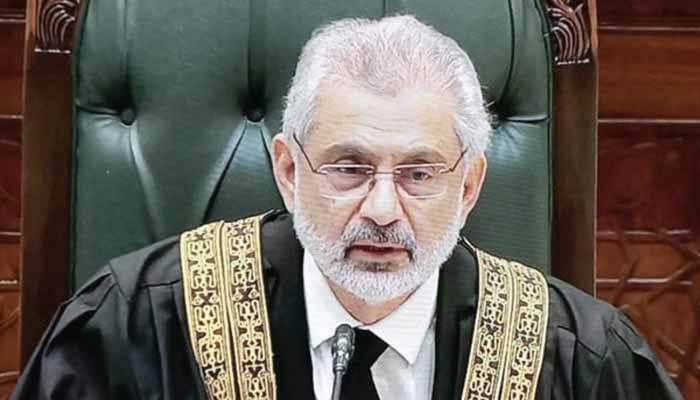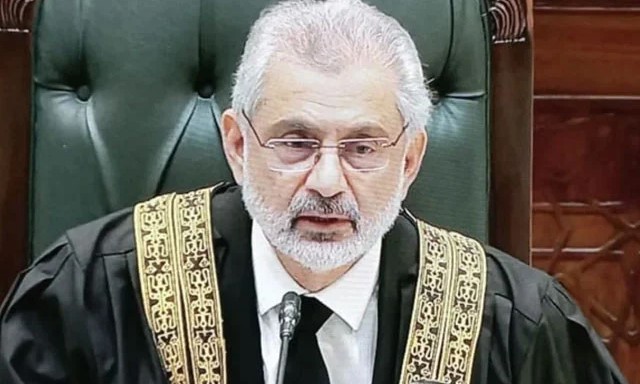LEGAL

Chief Justice of Pakistan Qazi Faez Isa clarified that the implementation of the Supreme Court’s July 12 verdict concerning the reserved seats case is not binding, given that appeals against it remain unresolved. This assertion emphasizes the importance of finality in judicial decisions and the procedural integrity of the Supreme Court.
In the July 12 ruling, the Supreme Court specified that 41 candidates from the Pakistan Tehreek-e-Insaf (PTI) are officially recognized as members of its Parliamentary Party in the National Assembly. However, this decision has been appealed by the Pakistan Muslim League-Nawaz (PML-N), the Pakistan Peoples Party (PPP), and the Election Commission of Pakistan (ECP), with the appeals yet to be scheduled for a hearing.
A previous clarification issued by the Supreme Court on September 14 reprimanded the ECP for failing to implement the July 12 judgement. Last week, the court reiterated that amendments made to the Elections Act 2017 do not negate the July 12 ruling, asserting that the ECP is obligated to comply with the Supreme Court’s decision without seeking additional clarifications.
CJP Isa, in a detailed minority verdict following the July 12 hearing, criticized the majority opinion for not concluding the appeals, stating that a judgement can only be executed if it is conclusively decided. He expressed concern that the majority’s ruling deviated from established legal practices, leading to unnecessary complications.
Highlighting constitutional violations, CJP Isa noted, “The well-trodden legal path was abandoned by the majority, creating avoidable problems.” He explained that, since the appeals remain undecided, there is no binding decision according to Article 189 of the Constitution, and contempt proceedings for non-compliance cannot be initiated.
CJP Isa further scrutinized the procedural integrity of the clarifications issued by the majority, questioning the legitimacy of decisions made without proper hearings or notifications to involved parties. “Secrecy and one-sided determinations undermine the trustworthiness of courts,” he stated, emphasizing the necessity for transparency in judicial processes.
The chief justice characterized the actions of the majority as effectively legislating without constitutional authority, stating that such practices contradict established Supreme Court precedents. He argued that the first and second clarifications issued lacked legal grounding and should not be considered binding orders of the Supreme Court.
In conclusion, CJP Isa asserted that the clarifications issued do not meet the standards of legal orders and are devoid of legal effect, reinforcing the need for adherence to constitutional principles and due process within the judiciary.




